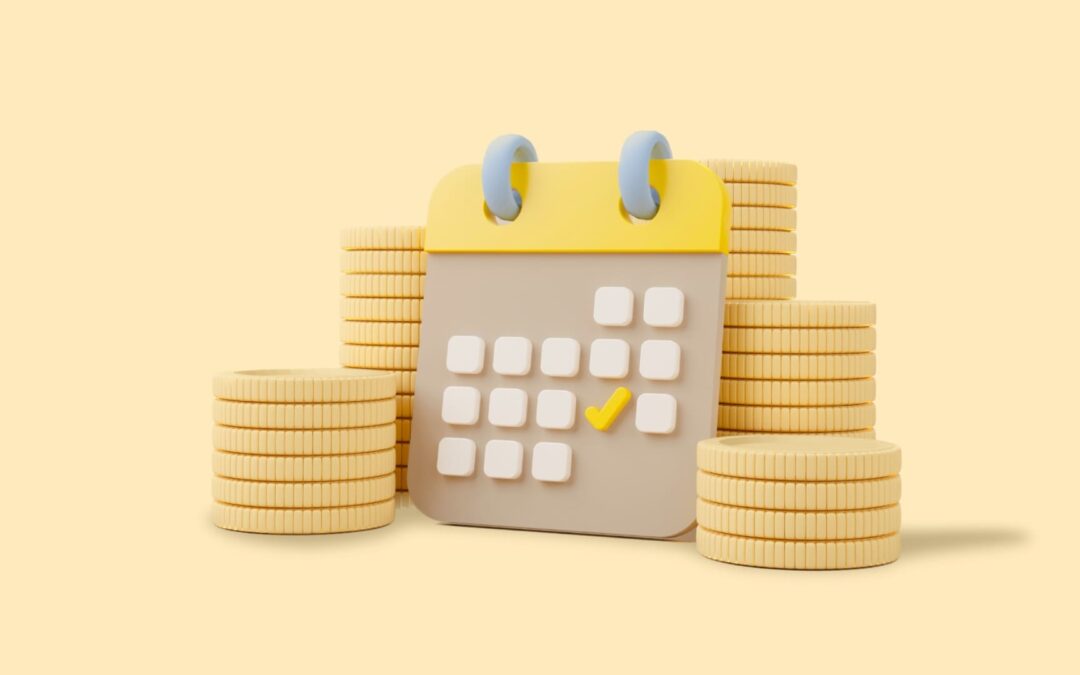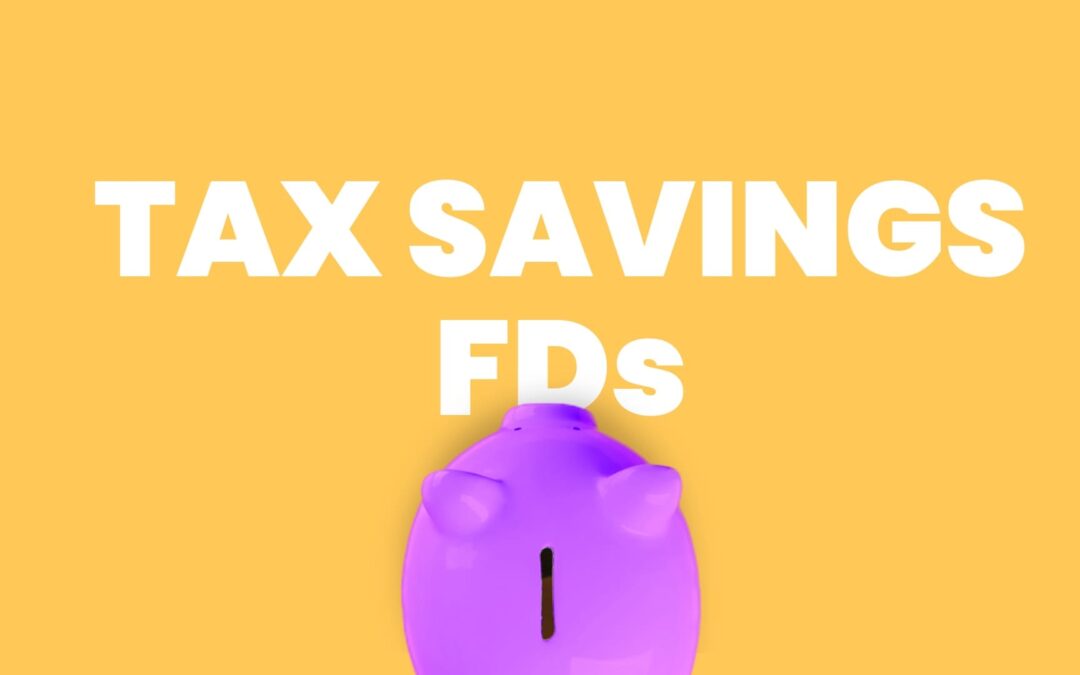
by Sathvik Nagraj | Feb 28, 2023 | Investment, Savings
Are you looking for a low-risk and tax-saving instrument to build your long-term corpus? India’s Public Provident Fund Scheme offers interest rates of up to 8.7% per annum. This makes it an ideal investment vehicle for those seeking financial security in the future. It is also one of the best and the proven ways to plan for retirement.
In this guide, we’ll explain all the features, benefits and eligibility criteria associated with the PPF scheme. We will also see how to open an account, make contributions and withdrawals and any applicable taxes or charges.
So if you’re ready to learn more about putting your money in a PPF, let’s get started!
Who is Eligible for a PPF account in India?
- The Public Provident Fund (PPF) Scheme in India is available to all individuals who are either Indian citizens or non-resident Indians (NRIs).
- The scheme is open to anyone who has a valid permanent account number (PAN) issued by the Income Tax Department or other eligible entities.
- No other documents or proofs apart from the PAN card are required to open a PPF account.
How is Interest calculated?
The interest rate of the Public Provident Fund Scheme is decided by the Government of India on an annual basis. It currently stands at 8.7% per annum.
The interest rate calculation is based on a simple interest method. It is credited for every financial year beginning on April 1st.
Interest earned on the PPF is tax-free. This makes it an attractive option for investors who are looking to maximise their returns on investment.
How to Open a PPF Account?
Opening a Public Provident Fund account is easy and can be done in just a few steps.
All individuals who meet the eligibility criteria outlined above are eligible to open an account with any authorised bank, post office or financial institution that offers PPF accounts.
Step 1
The first step in opening a PPF account is to fill out the prescribed application form. Submit it along with the required documents to the chosen bank, post office or financial institution.
Step 2
Once the application is approved, you will be required to make an initial deposit of Rs 500 (or more) into your PPF account.
Step 3
After that, you can choose to make deposits of any amount up to Rs 1.5 lakhs per financial year.
Contributions, Withdrawals and Taxes
Here is a breakdown of the contributions and withdrawals that can be done for a PPF account along with the taxes and charges associated with it
Contributions
- Contributions to the PPF account can be made in any denomination.
- A minimum amount of Rs 500 must be deposited each financial year. The maximum annual limit is Rs 1.5 lakhs per person.
- Contributions can be made through cash, cheques, drafts or electronic transfer (NEFT/RTGS).
Withdrawals
- Withdrawals from the PPF account are allowed from the seventh financial year onwards.
- A maximum of 50% of the balance at the end of fourth year (or preceding financial year) can be withdrawn in any one financial year.
- Partial withdrawals are also allowed twice in a block of five years and each withdrawal must be of a minimum value of Rs 500.
Taxes and Charges
- The interest earned on the PPF account is exempt from Income Tax under Section 80C of the Income Tax Act, 1961.
- However, if you do not deposit the required amount during any financial year, interest will be calculated at a rate of 1% for every month of default.
Benefits of Public Provident Fund in India
India’s PPF scheme is one of the best options for a healthy retirement plan. Some of its benefits include:
Tax Exemptions
One of the most attractive benefits of investing in a public provident fund is that interest earned and returns are exempt from tax.
This makes it an excellent option for those looking to build a corpus over the long-term. This helps them save on taxes while taking advantage of interest rates up to 8.7% per annum.
Tax Deductions available
Additionally, contributions made to the public provident fund are eligible for deductions under Section 80C of the Income Tax Act, 1961. The maximum limit is Rs 1.5 lakh in a financial year.
Easy accessibility of loans
Account holders also have the option of taking loans against their PPF account after 3 years from when it was opened. Loans can be taken for up to 25% of the balance at the end of the preceding year. However, interest charges will apply.
Portability
Finally, PPF accounts are also portable. Account holders can transfer them from one post office or bank branch to another without any hassle.
Conclusion
The Public Provident Fund Scheme is a great option for those looking to save on taxes while earning interest of up to 8.7% per annum. It offers tax exemptions and deductions, easy accessibility of loans, and portability from one post office or bank branch to another.
With these attractive benefits in mind, it’s no wonder why the PPF scheme has become an increasingly popular choice among investors who are seeking long-term returns on their investments.
Whether you’re just starting out with investing or already have some experience under your belt, the public provident fund could be a smart addition to your portfolio.

by Sathvik Nagraj | Feb 28, 2023 | Savings
Saving money is essential for achieving financial security and stability. It can help you build a cushion to cover unexpected expenses, take advantage of financial opportunities, and prepare for retirement. Hence, it becomes necessary to understand the importance of saving money.
Although saving money can be difficult, it’s important to view it as an investment in your future rather than a sacrifice today.
With the right strategies and motivation, anyone can start saving money and reap the rewards later in life. In this article, we explore why saving money is so important and provide tips on how to get started today. Also, check out our article on why personal finance becomes such an important aspect of life, here.
Why is Saving Money Important?
Among other benefits, creating a savings account provides financial security and stability in the event that you face an unexpected expense or lose your job.
- Saving money provides financial security and stability in the event of unexpected expenses or job loss.
- By having funds set aside, you can take advantage of financial opportunities when they arise.
- Creating a savings cushion allows you to plan for retirement and other long-term goals.
- Having a savings account helps protect against emergencies, such as medical bills or car repairs, that can be difficult to manage without funds set aside for them specifically.
- Investing money in savings helps you build wealth over time and provides peace of mind knowing that your future is secure regardless of what comes your way financially throughout life’s ups and downs .
It is Easy to Save Money!
Saving money successfully doesn’t need to be difficult. In fact, with the right mindset and strategies, anyone can start saving money today.
There are countless stories of everyday people who have been able to save a huge amount of money in various scenarios.
- Take, for example, Ram and Sita, a married couple that was able to save Rs 22,000 in one year by reducing their daily spending and cutting down on unnecessary expenses. Or consider Urmila, a single mother of two who was able to pay off more than Rs 15,000 worth of debt within two years by adopting an aggressive budgeting strategy and focusing on paying off her highest-interest debts first.
Tips on How to Stay Motivated When Saving Money
It’s easy to become discouraged when trying to save money. Here are a few tips for staying on track:
- Set realistic goals and make sure that you have a plan in place for reaching them.
- Track your progress, so that you can see how far you’ve come and be motivated to keep going.
- Reward yourself for meeting milestones along your savings journey.
- Remember why you’re saving, whether it’s for retirement, a new car, or a big vacation. Visualising the end goal can help keep you motivated.
- Find an accountability partner or join a support group to stay on track with your financial goals.
Conclusion: Importance of Saving Money
At the end of the day, it’s important to remember that saving money is an investment in your future and not just a burden today. Saving now can help you achieve financial security, prepare for the future, and take advantage of opportunities when they arise.
With the right mindset and strategies in place, anyone can get started on their savings journey today.
No matter how much money you have to save or where you’re starting from, every little bit counts.
Start small and build up gradually over time. You’ll be surprised at how far you can go on your savings journey. Good luck!

by Sathvik Nagraj | Feb 28, 2023 | Savings
Like most of us can concur, personal finance is an important aspect of life. Tax-saving FDs (Fixed Deposits) are an attractive investment option for those looking to save on their taxes while also earning competitive interest rates.
They offer the dual benefit of tax savings and higher returns than traditional fixed deposits. This makes them a great choice for savvy investors.
Let us discuss the different types of tax-saving FDs available in India, their features and benefits, and how you can make the most out of your investment in these schemes.
Features of Tax Saving FDs
Some of the inducive features of tax saving fixed deposit schemes are as follows:
Attractive tax savings
Investors can claim deductions of up to Rs 1.5 lakh for the amount invested in these FDs under Section 80C of the Income Tax Act.
This means that you can save a significant amount of money on your taxable income. This makes them an ideal choice for investors looking to reduce their tax burden.
Higher interest rates
These FDs generally offer higher interest rates than traditional fixed deposits. This makes them an attractive option for those looking to maximise their returns on investment.
They come with a lock-in period of 5 years
The major drawback of investing in fixed deposits that save tax is that they come with a 5 year lock-in period.
This means that you cannot withdraw your money before the end of this period. Hence, it is important to consider whether you’ll have the liquidity available to sustain such a long term investment.
Types of Tax Saving Fixed Deposits and Their Rates
There are various types of tax saving FDs available throughout the world. These points will help you choose the best one, suitable for your needs among the available options.
Public Sector Banks:
Public sector banks such as State Bank of India (SBI), Bank of Baroda, Punjab National Bank, etc., offer tax-saving fixed deposits with interest rates ranging from 5.75%-7.10%.
Private Banks:
Private banks such as HDFC Bank, Axis Bank, ICICI Bank and more offer tax-saving Fixed deposits with interest rates ranging from 6%-7.25%.
Small Finance Banks:
Small finance banks such as Ujjivan Small Finance Bank, AU Small Finance Bank, etc., offer tax-saving Fixed deposits with interest rates ranging from 6.25%-7.50%.
Cooperative Banks:
Cooperative banks such as Mahanagar Co-operative Bank, Saraswat Co-operative Bank, etc., offer tax saving fixed deposits with interest rates ranging from 5.75%-7%.
Things to Consider Before Investing in FDs
Any investment is subject to risks. Hence, here are things you need to consider and know before investing in tax saving FDs.
Consider Your Financial Goals:
Before choosing a tax-saving FD scheme, you should consider your financial goals and how long you are willing to stay invested in the scheme. This will help you determine which tax-saving FD best suits your needs.
Research Different Tax Saving Schemes:
Once you know what your financial goals are, you should research different options and their features. Compare interest rates, lock-in periods and other features to ensure that you choose the right scheme for you.
Invest in a Reputable Institution:
It’s important to invest in a tax-saving FD from a reputable institution. This will ensure that your money is safe and secure.
Conclusion
Tax-saving FDs are an attractive investment option for those looking to save on their taxes while also earning competitive interest rates.
With a variety of schemes available, it’s important to research different them and their features in order to choose the right one for your needs. Investing in a tax-saving FD from a reputable institution is the best way to ensure that your money is safe and secure.
By following these tips, you can make the most out of your investments and benefit from attractive features. Make sure to invest wisely and reap the rewards!

by Sathvik Nagraj | Feb 28, 2023 | Savings
Are you looking for a secure and reliable way to invest your money? Ever ponder about what is a Fixed deposit?
A fixed deposit is an investment that allows you to set aside a fixed sum of money for a fixed period of time, earning interest at pre-agreed rates. It is one of the most popular forms of long-term investments due to its low risk and high returns.
In this guide, we will explore the meaning of an FD, its benefits and whether they are a good investment. We’ll discuss the pros and cons of fixed deposits and provide tips on how to make the most out of fixed deposits.
To read about money market instruments and short term investments, check out our article here.
What is an FD?
- Fixed deposits are an investment option that allow individuals to save a specific sum of money for a particular period of time, with fixed interest rates agreed upon beforehand.
- It is one of the most popular forms of long-term investments due to its low risk and high returns.
- The meaning of fixed deposit is that when you make your deposit, you decide on the specific amount, specific period of time and the interest rate.
Benefits of Fixed Deposits
Some benefits and advantages of fixed deposits are as follows:
Low Risk
- FDs are considered to be low-risk, compared to other investment options such as stocks and shares.
- This is because fixed deposits guarantee fixed returns, with a fixed amount of capital being deposited for a fixed period of time.
- This makes it a good option for those who prefer low-risk investments.
High Returns
- FDs offer high returns compared to other low-risk investments such as savings accounts.
- They can earn you more money over the fixed period of time you have chosen.
- This is because FD interest rates are generally higher than those offered by other types of investments.
Flexibility
- Fixed deposits also offer flexibility when it comes to the fixed period of time as you can choose from fixed periods ranging from 1 month to even 10 years.
- This allows you to plan your fixed deposit investments according to your own needs and preferences.
The Disadvantages of Fixed Deposits
- Fixed deposits cannot be withdrawn before the fixed period ends without incurring penalties
- You may not benefit from market fluctuations or interest rate rises while your fixed deposit is in place
- They are not suitable for short-term investments as they cannot be withdrawn early.
- An investment in FDs will not help beat and combat inflation. The interest rates for FDs cannot compete with inflation rates because of a variety of reasons. Hence, it cannot be considered as an investment to beat inflation and rising prices.
Is Fixed Deposit A Good Investment?
- Fixed deposits are a great option for those seeking to invest in a low-risk, fixed income investment.
- Firstly, fixed deposits offer fixed returns, with fixed interest rates that are generally higher than other investments such as savings accounts.
- This means that you can expect to receive a fixed amount at the end of the fixed period of time you have chosen.
- Secondly, they offer flexible fixed periods of time, allowing you to plan and manage your fixed deposit investments according to your own needs and preferences.
- This makes FDs suitable for those who are looking to build up their savings over a long period of time.
Tips For Making The Most Out Of a Fixed Deposit
Like it has been discussed above, investing and putting your money in an FD is always a good option. But, always remember a few techniques and tips before investing, like:
1. Choose a fixed period of time that suits your needs:
FDs offer flexibility when it comes to the fixed period of time. You should choose the fixed period according to your own financial goals and objectives.
2. Consider interest rates:
FDs offer fixed interest rates and you should compare different FDs to find the one that offers the highest returns.
3. Check for penalties:
When choosing an FD, check for any penalties that may be incurred if you decide to withdraw your money before the fixed period ends.
4. Look for bonuses:
Some FDs offer bonus interest rates or other incentives such as waived fees to attract customers.
Make sure you compare different FDs to find the one that offers the highest returns and benefits.
Conclusion
In conclusion, FDs are a great option for those seeking to invest in a low-risk fixed income investment. They offer fixed returns with fixed interest rates that are generally higher than other types of investments such as savings accounts.
Furthermore, they provide flexibility when it comes to the fixed period of time. You can choose from periods ranging from 1 month to 10 years.
With these tips in mind, fixed deposits could be an ideal choice if you’re looking for long-term financial stability and security.

by Sathvik Nagraj | Feb 28, 2023 | Culture & Money
Gifting stocks is an increasingly popular gift-giving option that can provide the recipient with long-term financial security. Not only does gifting shares and stocks offer tax advantages, but it also provides a great opportunity to teach kids about investing and create a lasting legacy for generations to come. Hence, it is always a great idea to gift shares to your loved ones.
With thoughtful gift giving strategies, they can be an excellent way to show someone you care. It also provides them with financial stability in the future.
In this article, we will explore how gifting stocks works and discuss its many benefits as well as some tips on making successful stock gift decisions.
Also check out how to investing in your 20s and how it can help you massively in the long term in our article.
The Benefits of Gifting Stocks!
There are numerous benefits of gifting shares to your loved ones, both financially and emotionally. We will discuss some of them below:
Standard Benefits:
The person receiving the shares as a gift stands to benefit from its value appreciation financially. Some of those financial benefits are:
Tax Advantages:
Gifting stocks is a great gift-giving option due to the potential tax advantages it can provide. The gift recipient may be able to deduct part or all of the gift value from their taxable income. This depends on their personal financial situation.
This could make gifting stocks an attractive gift option for many people.
Long term financial security
Gifting stocks is an excellent gift-giving option for those hoping to provide someone with long-term financial security.
By gifting stocks, the gift recipient may have the opportunity to benefit from increased stock prices over time. This could result in a growing portfolio value.
Gifted stocks could also appreciate in value due to dividends that are paid out by the company.
Spreading awareness about investing and money management
Spreading awareness about investing and money management is essential for anyone wanting to create long-term financial security for themselves or others.
Gifting stocks is a great way to introduce people to investing, as it can give gift recipients the opportunity to benefit from stock market growth over time.
Not only does this provide them with valuable knowledge of how markets work, but it could also help them develop better money management skills.
Emotional Benefits
Gifting something to someone shows that you love and care for them. Hence, it benefits everyone emotionally in the long run.
Show someone you care
Gifting someone an investment to beat inflation is a great way to show someone you care with a gift that has lasting value.
Investing in stocks can provide financial security for the gift recipient over time and create a lasting legacy for generations to come.
Not only can it potentially grow in the stock market, but gifting stocks also offers many tax advantages and provides an opportunity to teach gift recipients about investing and money management.
Creating a Lasting Legacy for Generations
Gifting stocks is an excellent gift-giving option for creating a lasting legacy that can benefit future generations.
Not only does stock gifting provide financial security and tax advantages in the present, but it also offers potential rewards down the line as stocks appreciate in value over time.
Examples of Successful Stock Gift Stories
- One example of successful stock gift stories is the gift given by a couple who had invested in Coca Cola for over 40 years. They decided to gift shares to their grandchildren and great-grandchildren, creating a lasting legacy of financial stability for future generations.
- Another example is an entrepreneur who decided to gift his sizable stock portfolio to his children and grandchildren, providing them with invaluable knowledge about investing and money management as well as long-term financial security.
Tips and Tricks for Successful Stock Gift Giving
Before gifting stocks to anybody, make sure you understand the following tips:
Research the Gift Recipient’s Financial Situation
Before gifting stocks, it is important to research the gift recipient’s financial situation in order to determine which type of stocks would be best suited to their needs.
Factors such as their age, income level, and risk tolerance should all be taken into consideration when making stock gift decisions.
Choose Stocks with Long-Term Potential
When selecting stocks, it is important to choose stocks that have the potential for long-term growth and appreciation in value.
This will ensure lasting value and can potential benefits to future generations when you gift shares.
Educate the Gift Recipient
It is always a good idea to educate gift recipients about investing and money management.
This can help them make wise decisions with their stock gift and potentially maximize its potential value over time.
Conclusion
Gifting stocks is an excellent gift-giving option that can provide financial security and create a lasting legacy for generations to come.
It offers potential rewards down the line as stocks appreciate in value over time, and it also provides gift recipients with invaluable knowledge about investing and money management.
When gifting stocks, it is important to research the gift recipient’s financial situation and choose stocks with long-term potential. Educating gift recipients on investing will help them make wise decisions with their stock gift and potentially maximise its value over time.
It is a meaningful way to show someone you care while creating a secure future for yourself or others when you gift shares.





